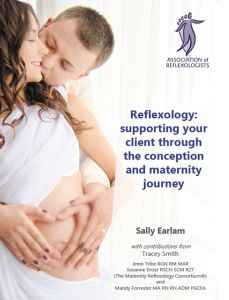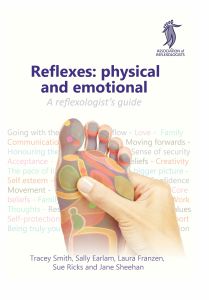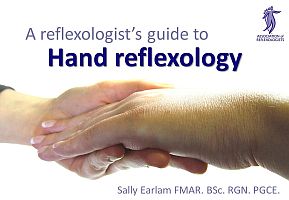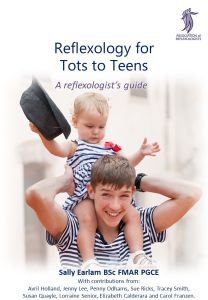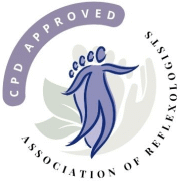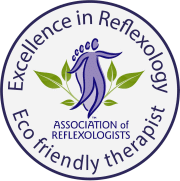Small steps towards emotional wellbeing and happiness with Positive Psychology
2023-05-31 08:28:37
Sally Earlam FMAR, BSc, PGCE (Retired RGN)
If there was ever a time that we needed to prioritise our emotional health and happiness, now is certainly one of them - with worries about cost of living, global conflict etc, affecting so many of us all around the world.
There have probably been other times as well when it has felt like the weight of the world is on your shoulders and everything is going wrong for you. During these times our brains will begin to scan the world for only the negatives and we fail to see or register the good things, however small they are, that are also around us. When life is getting us down this is the time we need to be kinder to ourselves and less critical of our actions; acknowledging that we have done the best we can at that time.
We often view the path to happiness and fulfilment as a grand mission to try and fix ourselves - and there is certainly plenty of information around as to what the best way to do this is! However Positive Psychology and the Science of Happiness movements are turning away from studying mental illness and are rather looking into how we can train the brain to look for positives in life as a way to regain mental wellbeing and happiness. Positive Psychology has shown that true, lasting happiness is created from focusing on cultivating and utilising your strengths and virtues - doing something you are good at and love, enhancing positive feelings and experiences, and fully engaging with all that life throws at you.
When our brains are receiving so many negative messages e.g. from the news, social media, friends and family etc the brain will be tuned into looking for other 'bad' things. However, if we can change the lens that we look through to encourage our brain to look for positives we can improve our sense of happiness and emotional wellbeing. If we can learn to be happy or content in the present then improved mental health may be possible.
I am certainly not saying it is always easy and it does take time and energy - they say it takes 21 days to change a habit so try some of the suggestions below. Start with one that appeals to you and that you think you can achieve and then over time introduce more:
•Three gratitudes - Write down 3 things you are grateful for as this helps train the brain to start looking for the positives - these can be really small things such as clear blue skies, a five minute Zoom call with a friend, finding a pack of toilet rolls in the shop etc
•Journaling - Write about one good thing that has happened to you today as this lets the brain re-live it.
•Exercise - tells your body that you are worth it and help to boost self-esteem and self-worth. Regular exercise has been associated with improved mental well-being and a lower incidence of depression. There are 23 studies on exercise and depression and one of the major conclusions was that exercise had a "large clinical impact" on depression.
•Eat for good gut health - Look after your gut microbiome as these respond to the food we eat and then interact with the body. Poor diet can make us feel anxious and depressed, if we feed them well it can lighten our mood . So try and replace processed foods with colourful plant-derived wholefoods.
•Mediation - can help calm the mental chitter chatter happening in our heads and brings clarity to thinking.
•Acts of Kindness - This can be as simple as giving an honest compliment to someone, shopping for vulnerable neighbours through to partaking in regular volunteer work. Not only does it help others but it increases your sense of purpose and can help you feel happier. Also be mindful that when stressed we can use unkind words as a way of venting - try and pause and check in that the words you are about to share are kind and supportive.
•Discover and use your strengths - Studies in the field of Positive Psychology show that the happiest people are those that have discovered their unique strengths (such as persistence and critical thinking) and virtues (such as humanity) and use those strengths and virtues for a purpose that is greater than their own personal goals
•Find your flow - Flow, as defined by Csikszentmihalyi in the 1970's, is essentially doing something you love and believe you are good at. It is characterised by intense concentration, loss of self-awareness, a feeling of being perfectly challenged (neither bored nor overwhelmed), with that sense that "time is flying". So look to find an area in your life where you can find some sense of flow, whether that is in play, creativity, or work(1).
I hope there is at least one suggestion that appeals, be kind to yourself and others and hopefully flow will return to all of our lives very soon.
Mindful Reflexology - Offering additional reflexology techniques and lifestyle ideas for clients living with stress, anxiety and depression.
If you would like to know more about how best to support your reflexology clients who are living with stress, anxiety and depression visit my website for details of this online training - sallyearlam.co.uk/online-mdf.html
Reference
1. Csikszentmihalyi, Mihaly (1990). Flow: The Psychology of Optimal Experience. New York: Harper & Row.
Bibliography
Authentic Happiness: Using the New Positive Psychology to Realise your Potential for Lasting Fulfilment. Martin Seligman. Nicholas Brealey Publishing. 2011
The Happiness Advantage. Shan Achor. Virgin Books. 2010. www.pursuit-of-happiness.org
The Stress Solution. Dr Rangan Chatterjee. Penguin. 2018
The importance of relaxation in menopause
2022-06-28 12:54:13
Sally Earlam FMAR, BSc, PGCE, (retired RGN)
We, as reflexologists, are in the perfect position to be able to help support women through perimenopause and menopause. We now know that there are so many things women can do to make this time easier in terms of reducing symptoms. I believe it is key that reflexologists gain a good understanding of menopause to be able to help educate and support our female clients. In this blog post I will look at the importance or reducing stress.
On average women spend a third to a half of their lives post menopause. We need to encourage women to feel positive about this next phase of their lives and to embrace this as a time to decide who they want to be for the rest of their lives and make plans for how they can achieve it - this may mean lifestyle changes need to be made to help ensure that they transition well, through to healthy ageing.
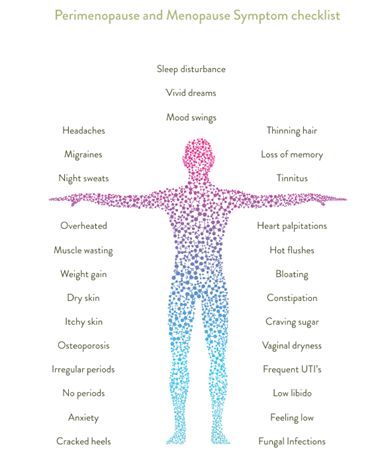
As oestrogen levels fall in perimenopause this can play havoc with women's health. We typically think about oestrogen and progesterone as our reproductive hormones, however we have oestrogen receptors around the whole body. These are proteins that are found within cells across the body and they receive oestrogen from the bloodstream, which acts as a message for a particular activity. They are found in many areas of the body including reproductive organs, breast tissue, bones, joints, ligaments, tendons, skin, cardiovascular system, thyroid, central nervous system and gastrointestinal tract. So it then comes as no surprise that as oestrogen levels fall the symptoms are so far reaching.
Symptoms can include hot flushes, night sweats, palpitations, irritability, mood swings, insomnia, irregular periods, low libido, dry vagina, fatigue, anxiety, depression, poor concentration, poor memory, incontinence, itchy skin, achy joints, achy muscles, headaches, migraines, bloating, allergies, weight gain, hair loss, facial hair, dizziness, gum disease, bad breath, weak nails, tinnitus etc. Longer term, blood vessels and lymphatics become less elastic, cholesterol levels can increase, there can be changes to the liver including inflammation and fatty liver, higher cortisol levels and increased inflammatory markers that can contribute to many chronic conditions.
This is why in menopause it is so essential that women begin to take control of their lives, prioritise self-care and look at lifestyle factors to maintain optimum health.
In my CPD training course on Reflexology for Menopause I talk about the 5 Pillars for Healthy Menopause which looks at lifestyle factors that have been shown to help reduce menopausal symptoms and one of these is reducing stress levels.
A note about stress and the importance of relaxation
A study has shown that chronically elevated cortisol (a stress hormone) increases the likelihood of severe menopausal symptoms (1) so prioritising relaxation is key.
If we look at the pathway of how hormones are produced in the body our oestrogens, progesterone and testosterone are primarily produced in the ovaries and adrenals. Production of these hormones requires cholesterol, pregnenolone and dehydroepiandrosterone (the latter 2 are produced in the adrenal gland). However if cortisol is required by the body the adrenals will rob the cholesterol, pregnenolone and DHEA to produce the stress hormone potentially leaving no base ingredients for the sex hormone production. So lowering stress can have a profound effect on symptoms.
There are of course times when women need to seek medical help or consider HRT so concerned clients should be encouraged to speak to their GP. But relaxation is important even for clients on medication.
Managing stress levels - Make time for yourself - you are worth it
Oestrogen and progesterone(O&P) are considered to be our calming hormones and they help protect us from cortisol. So as O&P come crashing down in menopause, we feel the effects of our stress hormones more, hence anxiety is a really common symptom. Menopause can often happen in conjunction with children leaving home, a negative perception of ageing and possible worries of ageing parents. So no wonder we need to look after our emotional wellbeing at this time too.
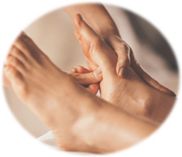
It is worth women spending time to reflect and be honest with themselves about their stressors and lifestyle. If life feels like it is a struggle, they can then look at making positive changes to help improve emotional wellbeing. Ideally, have regular reflexology and spend at least 10 minutes a day on relaxation techniques such as meditation, mindfulness, journaling or writing down 3 things they are grateful for each day. Make this a positive act, slumping in front of the TV doesn't count. It needs to be a time for an activity that takes them out of your head and into your body.
It is so important to take care of mental health as in women the rate peaks between the age of 45-54 years old, and the most common issue is mixed anxiety and depression (4). If anxiety and/or depression are affecting their daily life then they should talk to their GP.
Daily activities for Emotional Wellbeing
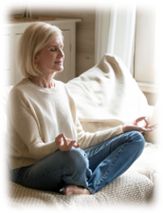
• Daily stress busters - meditation, yoga, journal, walking etc
• Exercise - is a cornerstone of emotional wellbeing
• Vision boards - place your dream on a board, this primes the brain looks for opportunities
• Journaling / 3 gratitude's - allows you brain to focus on positives
• Look after blood sugar levels
• Reduce/Avoid caffeine and alcohol
• Treat yourself - because you are worth it!
• Do something creative
• Laugh and smile as much as you can
• Talk to friends, family or professionals - about how you are feeling
Reflexologists should be there to support women not only by offering the reflexology but by maintaining unconditional positive regard, non-judgmental listening, and be able to share knowledge if clients wish to know more about lifestyle changes.
We want our clients to go away with improved physical and emotional wellbeing
If you are interested in learning more about Reflexology for Menopause or to book this course please visit sallyearlam.co.uk
References
1. Cagnacci A, Cannoletta M, Caretto S, Zanin R, Xholli A, Volpe A. Increased cortisol level: a possible link between climacteric symptoms and cardiovascular risk factors. Menopause. 2011 Mar;18(3):273-8. doi: 10.1097/gme.0b013e3181f31947. PMID: 21037488.
Finding your PMZ - Post Menopausal Zest for life
2021-08-18 11:50:13
Sally Earlam FMAR, BSc, PGCE, (retired RGN)
 For those approaching their 50's and 60's there are going to be plenty of new challenges coming their way which may affect both physical and emotional health. This is a time when children may be leaving home, there may be thoughts of marrying the wrong person (1), concerns of how they will cope with retirement, possibly the loss of friends and health issues may begin to arise- throw this in with reducing hormone levels and this then certainly becomes a time when clients could do with a little extra help!
For those approaching their 50's and 60's there are going to be plenty of new challenges coming their way which may affect both physical and emotional health. This is a time when children may be leaving home, there may be thoughts of marrying the wrong person (1), concerns of how they will cope with retirement, possibly the loss of friends and health issues may begin to arise- throw this in with reducing hormone levels and this then certainly becomes a time when clients could do with a little extra help!
According to the Office of National Statistics more women are now working than ever before, and many will have to work well into their 60's. Alongside work, women frequently hold responsibility for running the home, family life, budgeting etc. It is therefore little surprise that women often have times when pressures may feel excessive - throw all of that in with our changing hormone levels associated with peri-menopause and menopause and no wonder that this is a time when we could all do with a little extra help.
The Mental Health Organisation Health Statistics (1) report that women in the UK are more likely to have an anxiety disorder and this is most common between the ages of 45 to 54 - but why? And what can we do to protest our own emotional health?
 This is a time when many things can be happening in our lives, there may be children leaving home, worry about getting work and also dealing with the peri-menopause and menopause. Hormones are essential for women's health and changing levels can affect us both physically and emotionally. As we approach the menopause, our oestrogen levels drop; oestrogen has many functions, including a direct impact on the stress hormone Cortisol. As oestrogen levels drop, Cortisol levels can rise which means that Adrenalin (our primary stress hormone) can easily be triggered in the body leaving us feeing anxious and stressed. On top of dealing with our changing hormones we also have to tackle the bad press that Western society tends to place on the menopause where our youth-obsessed cultures emphasise "loss" of fertility, rather than transition and the gain of wisdom and freedom. The medical or "disease" model of menopause seems to be dominant (2).
This is a time when many things can be happening in our lives, there may be children leaving home, worry about getting work and also dealing with the peri-menopause and menopause. Hormones are essential for women's health and changing levels can affect us both physically and emotionally. As we approach the menopause, our oestrogen levels drop; oestrogen has many functions, including a direct impact on the stress hormone Cortisol. As oestrogen levels drop, Cortisol levels can rise which means that Adrenalin (our primary stress hormone) can easily be triggered in the body leaving us feeing anxious and stressed. On top of dealing with our changing hormones we also have to tackle the bad press that Western society tends to place on the menopause where our youth-obsessed cultures emphasise "loss" of fertility, rather than transition and the gain of wisdom and freedom. The medical or "disease" model of menopause seems to be dominant (2).
It is surely now time to challenge this attitude; menopause is not an illness, but is rather a natural gradual process whereby a woman's body moves out of childbearing years and aims to head into a liberated and more relaxed phase of life and healthy ageing. Maud Mead (anthropologist) describes her own positive experience of giving up PMS for PMZ (post- menopausal zest). However, we cannot ignore the fact that women can experience some common physical and emotional symptoms associated with peri-menopause and the menopause, but women should be able to feel empowered to look for support to help them deal with symptoms they experience and not feel they are 'ill' or are less valued in society.
How could Reflexology help?
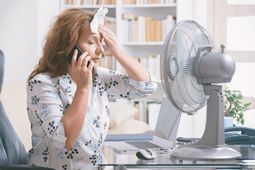 Three common symptoms that women can experience in peri-menopause and menopause are hot flushes, poor sleep and anxiety. A study has been completed in Iran, looking at the effect of Reflexology on menopausal women and showed a reduction in hot flushes and an improvement in sleep (3). Reflexology has also been shown to significantly reduce anxiety state associated with 'an increased feeling of ease and a reduction in anxiety' (4).
Three common symptoms that women can experience in peri-menopause and menopause are hot flushes, poor sleep and anxiety. A study has been completed in Iran, looking at the effect of Reflexology on menopausal women and showed a reduction in hot flushes and an improvement in sleep (3). Reflexology has also been shown to significantly reduce anxiety state associated with 'an increased feeling of ease and a reduction in anxiety' (4).
Looking at lifestyle is also key for wellbeing and healthy ageing including diet and nutrition, exercise, relaxation, sleep and ensuring you have a sense of purpose. This is a time for women to decide who they want to be for the rest of their lives and make an action plan as to how they can get there!
If you are interested in learning more about Reflexology for Menopause or to book this course please visit sallyearlam.co.uk
References.
1. http://www.independent.co.uk/news/uk/home-news/what-the-middleaged-regret-marrying-the-wrong-person-9878687.html
2. http://www.mentalhealth.org.uk/help-information/mental-health-statistics/
3. Geraldine Giles. Association of Reflexologists Reflexions magazine. September 2014.
4. Maryam Asltoghiria and Zahra Ghodsi. Procedia - Social behaviour and sciences (iran). The effects of Reflexology on sleep disorder in menopausal women
5. Evaluation of anxiety, salivary cortisol and melatonin secretion following reflexology treatment: A pilot study in healthy individuals A.J. Mc Vicar, C.R. Greenwood, F. Fewell, V. D'Arcy, S. Chandrasekharan and L.C. Alldridge. Complementary Therapies in Clinical Practice, 2007 VOL 13; NUMBER 3, page(s) 137-145
Baby Brains - changes that occur in pregnancy
2021-08-17 19:06:16
Sally Earlam FMAR. BSc. PGCE. (retired RGN)
Working as a Maternity Reflexologist has brought me some of my most precious moments of my working life. However I do believe that you need to really want to work with pregnant women - and this may not be for everyone. I am going to look at some of the changes that occur in the brain during pregnancy which explains some of the behaviours we see in maternity.
For this article I will refer to the foetus as the 'baby'.
Baby Brains

A lot of things change when a woman becomes pregnant with some of the most marked changes being the emotional ones. Scientists have now identified that these are largely driven by neurological alterations that occur in the brain that can make a woman obsess and worry about their new little creation. (1)
Under the influence of increasing hormones there are many changes that occur in the brain including in the prefrontal cortex, midbrain, parietal lobes and grey matter becomes more concentrated. These discoveries begin to explain some of the behavioural changes that commonly occur in pregnancy and up to 2 years after the birth of the baby.
There is also increased activity in the amygdala, part of the limbic system, which essentially drives our emotional reactions such as fear, anxiety, motivation, affection, empathy etc, and it is this enhanced amygdala that makes new mums hypersensitive to her baby's needs, especially just after the birth.
All of these neurological changes lead to maternal feelings of overwhelming love, fierce protectiveness and worry and as a result most pregnant women and new mums want to talk baby and need the space to be able to talk baby. This brings an important consideration for those therapists that want to work in Maternity Reflexology; we need to be in a place where we are able to and want to listen to their baby talk.
It is these emotional and behavioural changes that can affect many, if not all key relationships:
Impact of Baby Brain on the couple

During pregnancy and the first year after the birth, 40-70% of couples report some decline in relationships (2) with the key issues described as:
• Less positive communication - both partners report feeling isolated and less supported.
• Tiredness and exhaustion
• Increased conflict e.g. household chores
Of course the same level of neurological changes do not occur in the partner's brain, so you have women who may want to constantly talk baby and feel the partner is not interested in the baby (they are, but not to the same level) and the partner who feels their relationship is being neglected.
Tips for Reflexologists
If these types of concerns are raised by your client, then reassure her it is normal. Encourage her to talk to, and listen to her partner and maybe suggest she shares her hopes and dreams and encourages her partner to share theirs as this may help initiate some two-way positive communication. But perhaps best of all suggest she tries to arrange some quality time for them together, doing something they both enjoy, as a reminder of why they fell in love in the first place.
Impact of Baby Brain on friends and family

This can be a trying time for many of those longstanding relationships that have previously been a key part of your client's support network and two possible scenarios are that family or friends can:
• Start to withdraw from the relationship as they may feel excluded or jealous as they are at a different stage in their lives and don't want to listen to 'baby talk'. It could even be that they have had issues with conception and it is too painful for them.
Tips for Reflexologists
Reassure your client that friendships can sometimes adapt or come back later in life and new friendships will be made. You could suggest she looks for antenatal classes in her local area to meet with other mums-to-be.
• Offer unwanted advice or criticism. Pregnancy seems to bring with it plenty of 'advice' from others whether asked for or not.
Tips for Reflexologists
Reassure her that it is OK to say that some decisions need to be made by her and her partner and they will decide what is right for them.
Impact of Baby Brains on themselves

All of the swirling hormones and changes in the brain leads to many unfamiliar feelings for the woman - they can be on an emotional rollercoaster and find it hard to comprehend how they can be laughing one minute and crying the next. How they see themselves as a worker, a friend, a partner, a mother to be is changing and can also bring up memories of how they were parented - and these can be good or bad.
Tips for Reflexologists
Remember this is a time when anxiety is more common, you can reassure them this is normal to have worries but if you have concerns that their anxiety is affecting their everyday life encourage them to talk to their midwife or GP. It is also possible to refer yourself for counselling without seeing a GP if you live in England through the NHS website (4)
Build the relationship with their baby
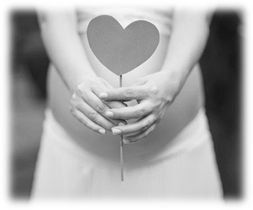
This is a time where your client is developing a completely new relationship and the changes that occur in the brain are similar to the changes that occur when you fall in love - only this time thoughts are dominated by the baby not the partner. Of course in all of this the mother has one very willing audience who will never tire of the baby talk - and that is the baby. Babies are thought to recognise the mother's voice from around 26 weeks and the sound of her voice will calm the baby - unborn babies clearly respond to different vibrations and sounds with changes in their heart rate and movement patterns, and are particularly responsive to the sound of their mother's voice (3).
Tips for Reflexologists
Encourage the mother to talk to their baby. Talking and singing to their bump can be a lovely way to start building a relationship with their unborn baby and can benefit them as well as their baby
If you are interested in learning more about Reflexology for Menopause or to book this course please visit sallyearlam.co.uk
References:
1. Swain JE, Lorberbaum JP, Kose S, Strathearn L.. Brain basis of early parent-infant interactions: psychology, physiology, and in vivo functional neuroimaging studies.. J Child Psychol Psychiatry. 2007 Mar-Apr;48(3-4):262-87.
2. Shapiro, A.F. and Gottman, J.M., 2005. Effects on Marriage of a Psycho- Communicative-Educational Intervention With Couples Undergoing the Transition to Parenthood, Evaluation at 1-Year Post Intervention. Journal of Family Communication 5, 1-24.
3. Voegtline KM et al. Near-term fetal response to maternal spoken voice. Infant Behav Dev 2013;36:526-33.
4. https://beta.nhs.uk/find-a-psychological-therapies-service/
<




